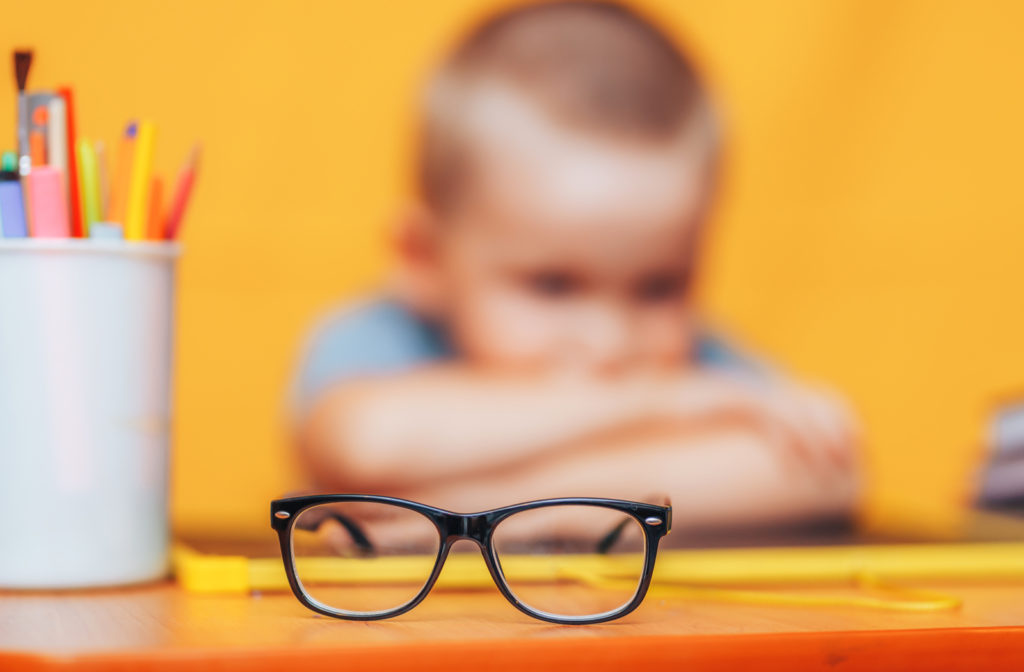Can Myopia Get Worse With Age?
Myopia is a common eye condition, affecting around 25% of Americans. Also known as nearsightedness, myopia causes difficulty focusing on objects at a distance. If you have trouble seeing at a distance, it could be a sign you need to get your eyes checked.
If you’re an adult with myopia, your condition is unlikely to change. Symptoms usually stop progressing around the age of 20. However, myopia can get worse in children if not treated correctly. If you have a child with myopia symptoms, they should visit an optometrist for diagnosis and treatment.
Read more to discover why myopia can progress in children but not adults and how an optometrist can help your child manage their condition.
Understanding Myopia
Myopia is caused when light enters the eye and focuses in front of the retina instead of on it. When light enters the eye, it refracts through the clear outer layer known as the cornea and through the lens, focusing light on the retina. Myopia causes objects at a distance to appear blurry.
An optometrist can diagnose myopia by testing vision during a comprehensive eye exam. A typical eye exam uses instruments to determine how well you see at different distances and angles. The optometrist can also use a retinoscope to see how light hits your retina to confirm a myopia diagnosis.
Myopia symptoms are usually a result of straining to look at an object at a distance. In addition to blurry vision, a person with myopia will often:
- Squint to get a better view of distant objects
- Experience headaches resulting from eye strain
- Have difficulty driving, especially at night
Getting treatment for myopia can increase the quality of life and help keep a person safe, especially in situations where they need to be alert to their surroundings, like driving and sports.
Myopia in Children
Myopia symptoms often begin in childhood, between the ages of 8-12. Kids with myopia show symptoms more obviously than adults as they try to make out details of the world around them. Signs of myopia in children include:
- Persistent squinting
- Sitting closer to the TV
- Frequent eye-rubbing
- Excessive blinking
Your child’s optometrist can detect myopia through a children’s eye exam. Refractive errors like myopia can lead to difficulty learning in school, trouble playing sports, and shortened attention spans. It is essential to detect myopia early to give your child treatment to overcome the challenges related to myopia.
Can Myopia Get Worse With Age?
Children’s eyes grow the same way as the rest of their bodies. When a child is constantly straining their sight because of myopia, it can worsen the condition. However, since a child’s eyes are continually growing, they can also be trained to overcome myopia.
If myopia is not treated early enough, it could lead to more difficulty later on in life. Childhood is the ideal time to invest time and energy into controlling myopia to ensure a child doesn’t experience worse symptoms as an adult.
Controlling Myopia Progression
Myopia control is a specific area of children’s eye care focused on slowing or stopping myopia progression. Different treatment options are available depending on the symptoms and causes of your child’s unique myopia condition.
Prescription Eyeglasses
Myopia can worsen when a child strains their eyes too much to see objects at a distance. When they strain their eyes, they’re training their eyes to see that level of blurriness at all times, making their condition worse.
Prescription eyeglasses can make a remarkable difference for a child since they correct distance vision and eliminate blurriness. By correcting distance vision, prescription eyeglasses reduce eye strain and help a child focus naturally.
Gentle Vision Shaping
Orthokeratology, or ortho-k, is a type of specialty treatment which uses a rigid gas permeable contact lens to reshape a child’s cornea. Ortho-k lenses are worn overnight so a child can see clearly during the day.
Consistently earing ortho-k lenses can slow or even stop the progression of myopia.
Specialty Contact Lenses
Specialty contact lenses reduce eye strain in a similar way to prescription eyeglasses. Multifocal lenses like MiSight 1 day lenses offer different focus areas so a child can see objects in the distance without sacrificing their normal eyesight.
Getting Myopia Treatment
Detecting myopia early through a children’s eye exam is best to ensure myopia doesn’t worsen. When a child gets the help they need, they have the potential to do better in school, play more freely, and enjoy seeing and learning about the world around them.
Visit our Lincoln eye doctor to find out more about myopia diagnosis and control.



